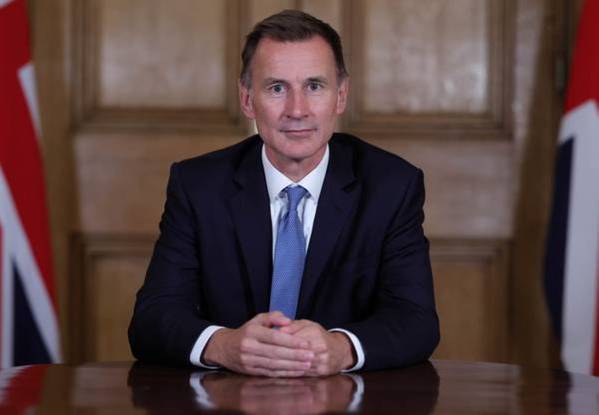
British finance minister Jeremy Hunt said on Thursday the government would increase a windfall tax on oil and gas firms and extend it to power generation firms as he seeks to raise money to plug a major hole in the public finances.
Soaring oil and gas prices in the wake of Russia's invasion of Ukraine have sent household energy bills to record highs, triggering Britain's worst cost of living crisis in generations.
Hunt said the levy on oil and gas companies would be increased to 35% from its current rate of 25% and extended until the end of March 2028.
The windfall tax will be expanded to electricity generators with a levy of 45% being applied from Jan. 1 to revenues the government deems "extraordinary", from low carbon power generators such as wind and nuclear.
The two measures are expected to raise around 14 billion pounds for 2023/24 fiscal year, a treasury document showed.
Currently the cost of producing electricity from gas-fired power stations is usually the benchmark for setting the wholesale electricity price that helps to determine how much people pay for their energy.
This means generators of renewable and nuclear plants can benefit from high wholesale prices.
Treasury documents show the 45% tax on low-carbon power generators would apply to revenue made on power generation at an average price over 75 pounds per megawatt hour (MWh).
OIL AND GAS WINDFALL
The higher windfall tax on oil and gas producers will take effect on Jan. 1.
Jefferies analysts said in a note that the extension of the tax's timeframe to 2028 from the end of 2025 was shorter than initially expected.
Shares of Harbour Energy, the largest North Sea producer, and newly-listed Ithaca Energy were up 1% and 0.8%, respectively, by 1344 GMT.
Shell said in response to the announcement that "the energy sector needs to have confidence that there will now be a stable investment climate following a period of considerable uncertainty".
Shell plans to spend up to 25 billion pounds ($29.5 billion) in Britain's offshore wind, low-carbon energy and oil and gas production over the next 10 years. Rival BP plans to spend 18 billion pounds by 2030 in Britain.
The government said that it will reduce its investment allowance plan for spending on new oil and gas extraction to 29% of all investment expenditure.
($1 = 0.8474 pounds)
(Reporting by Kylie MacLellan, Elizabeth Piper and Susanna Twidale, editing by Mark Heinrich, Kirsten Donovan)